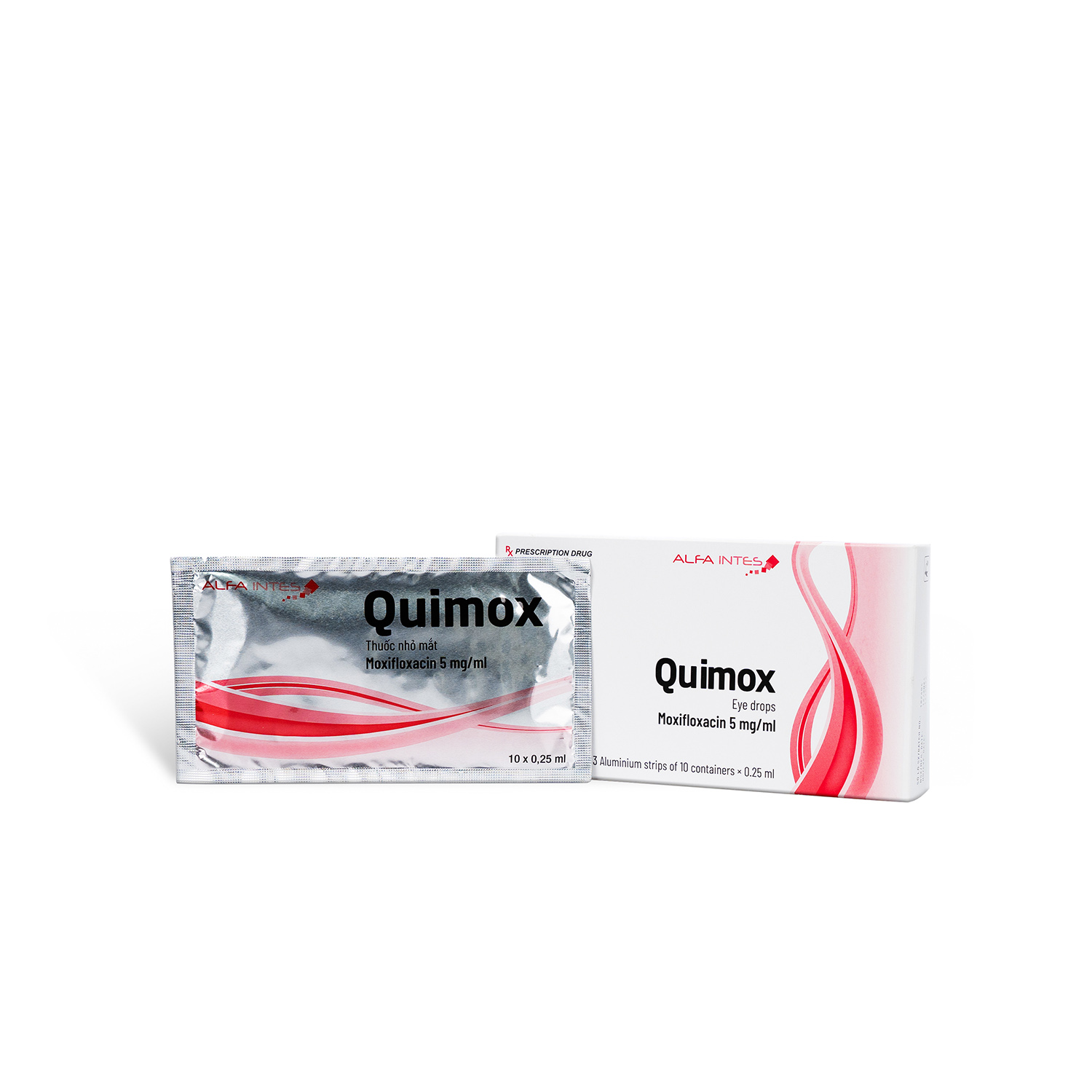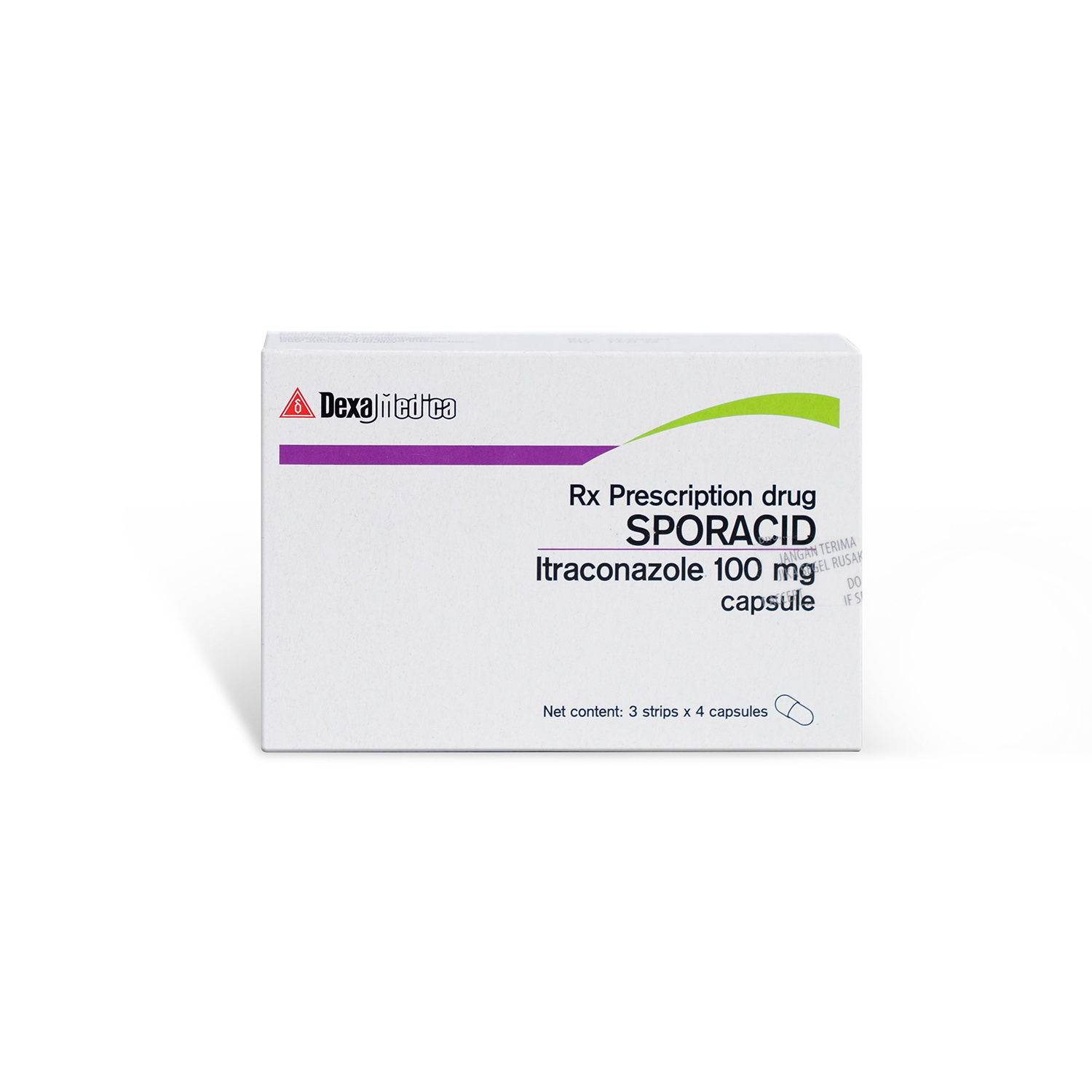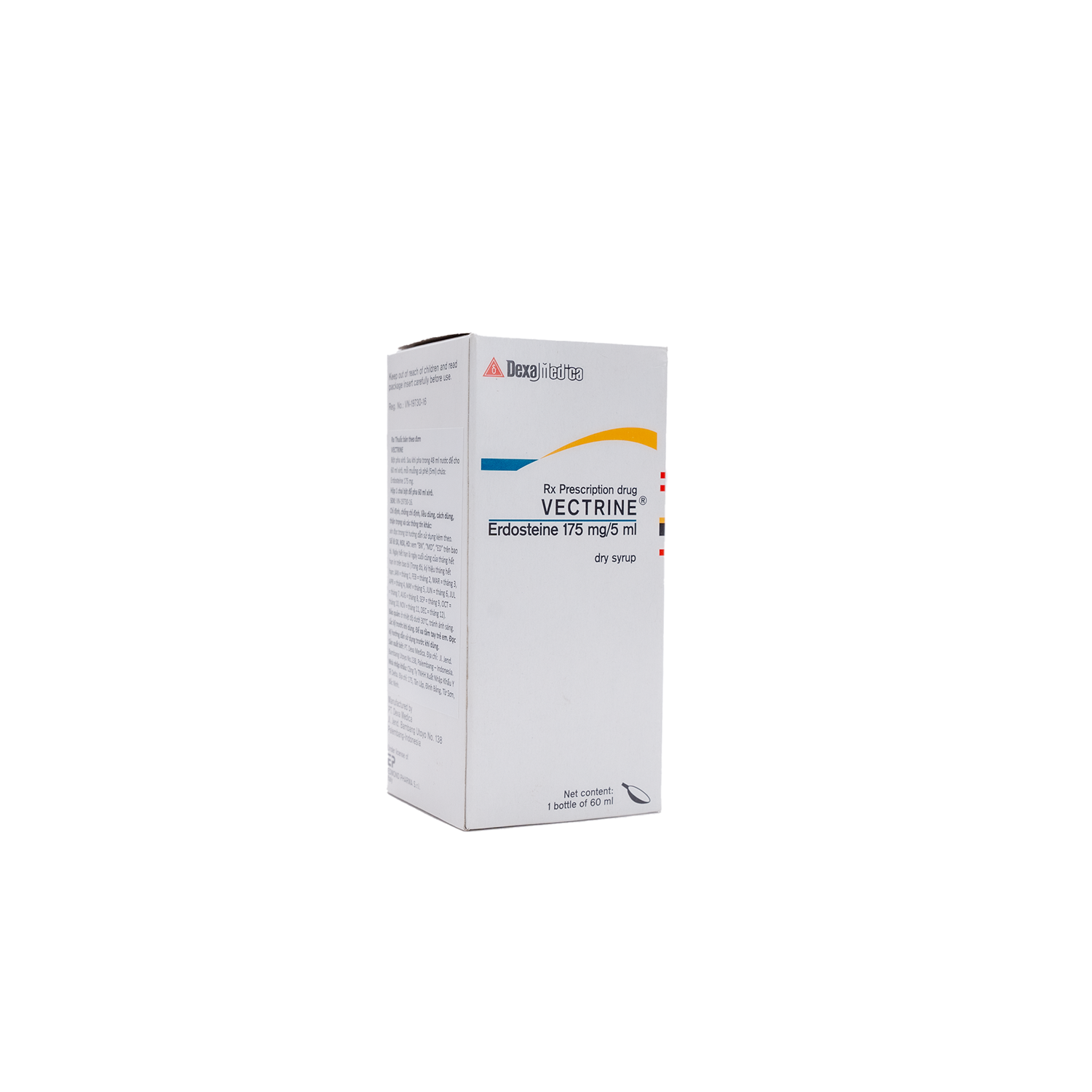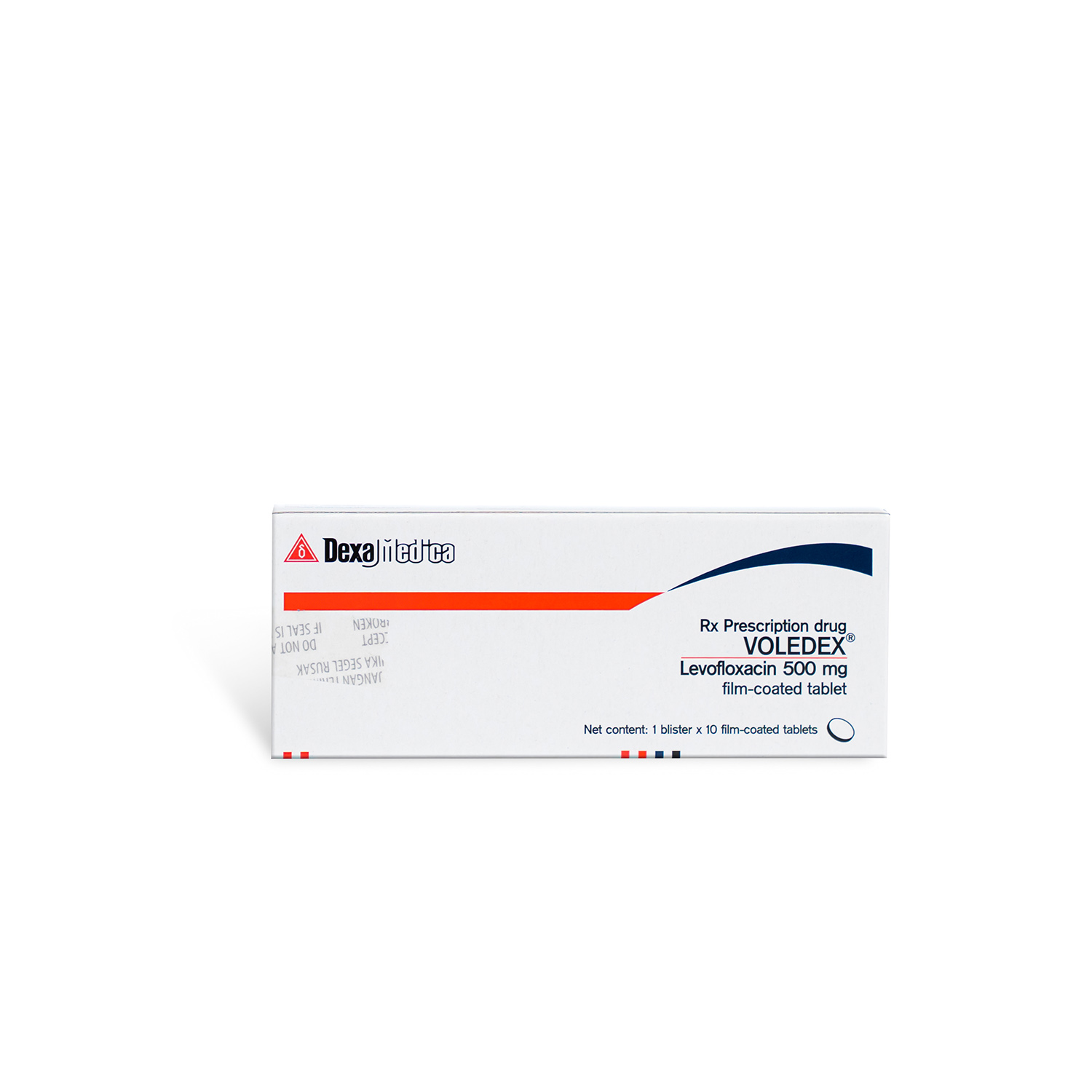

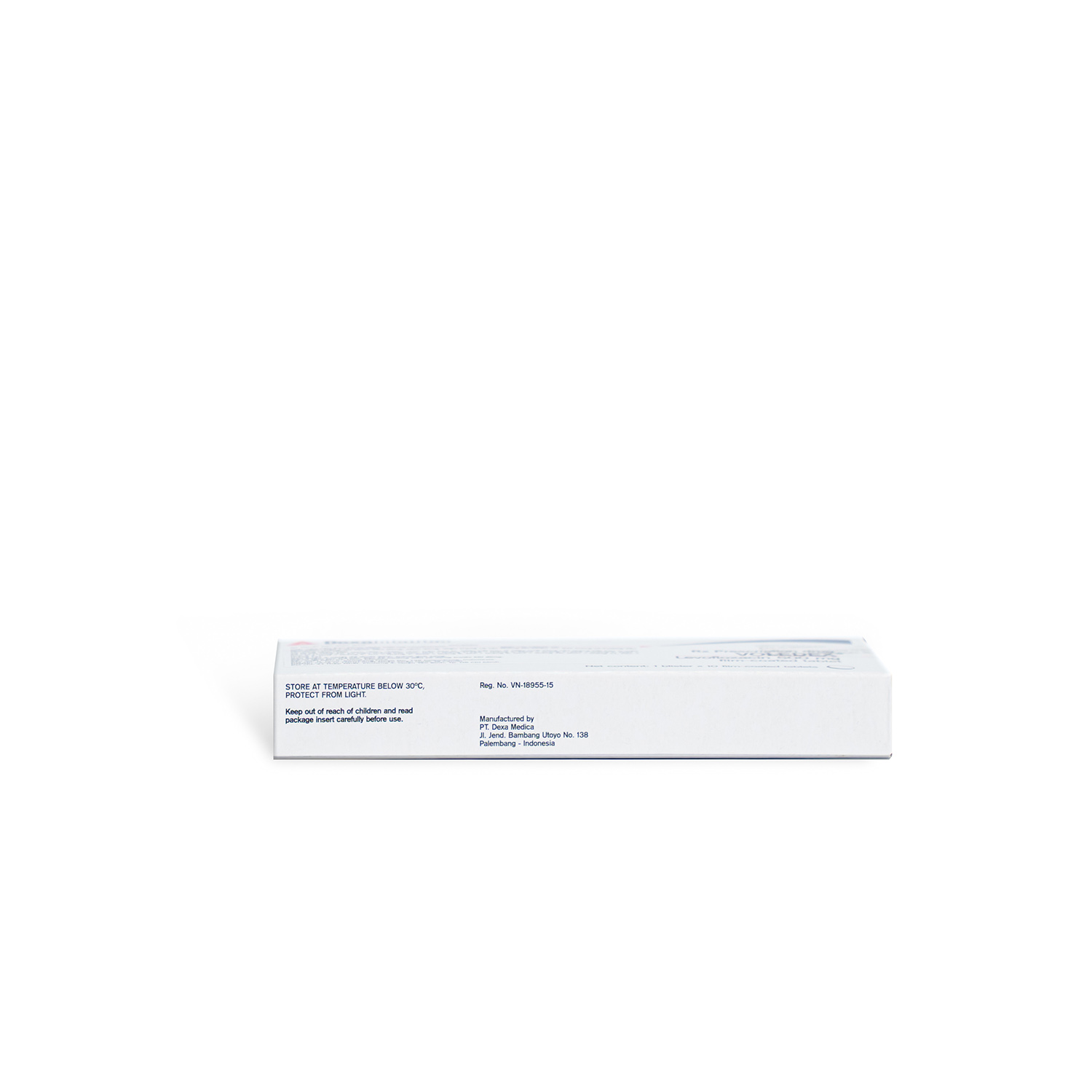
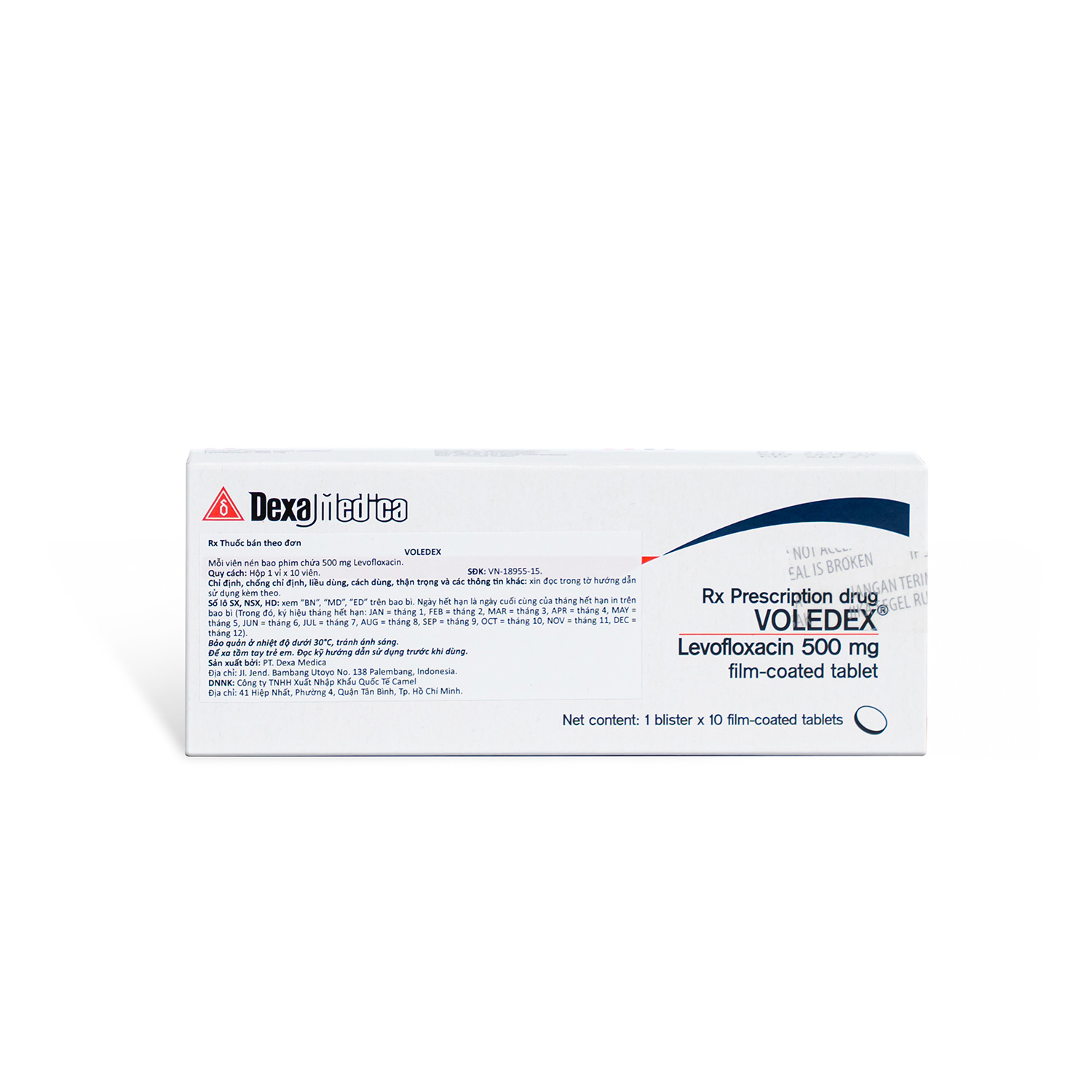
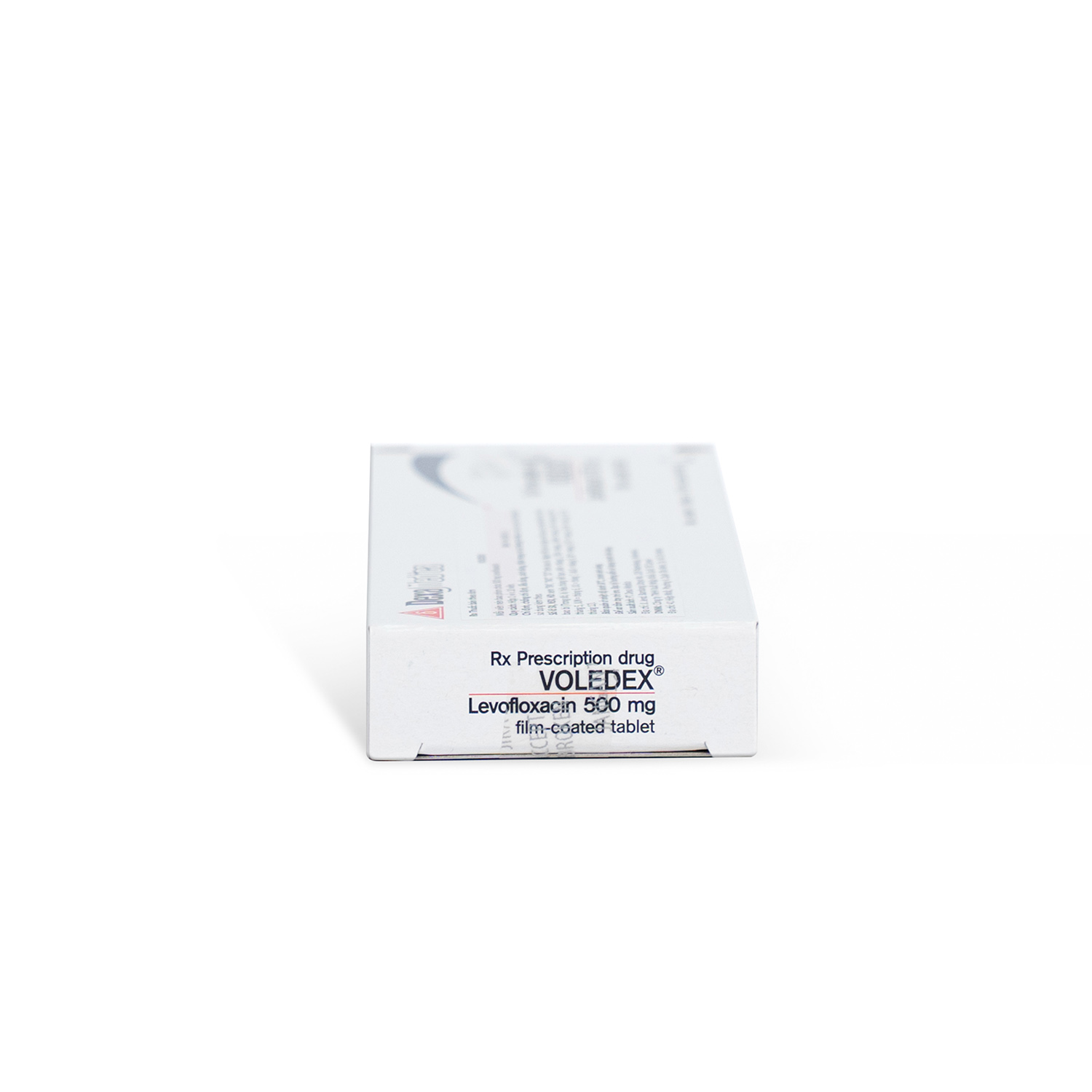
Voledex
Manufacturer
PT. Dexa Medica, Indonesia
Applicant company
PT. Dexa Medica
Active ingredient
Levofloxacin
Content
500mg
Shelf life
36 months
Dosage Form
Film-coated tablets
Package
Box of 1 blister x 10 tablets
Visa Number
VN-18955-15
Issuing Date
26/05/2015
Therapeutic area
Antibiotics
Indication
The drug is a synthetic antibiotic belonging to the fluoroquinolone group. The medicine works by killing bacteria that cause infections in the body.
The drug is indicated for the treatment of infections caused by bacteria sensitive to levofloxacin:
- Community-acquired pneumonia;
- Complicated urinary tract infections (including pyelonephritis);
- Chronic infectious prostatitis;
- Complicated skin and soft tissue infections.
The drug is used as an alternative treatment to other conventional antibiotics for the following infections:
Uncomplicated urinary tract infections.
Because fluoroquinolone antibiotics, including levofloxacin, have been associated with serious adverse reactions (see Warnings and Precautions) and uncomplicated urinary tract infections in some patients may resolve spontaneously, Use the drug in patients who have no other treatment options.
Before prescribing, official national and/or local guidance on the appropriate use of antibiotics should be taken into account.
Dosage
The medication is used once or twice daily. The dosage depends on the type and severity of the infection and the presumed susceptibility of the causative organism.
Duration of Treatment
The duration of treatment varies depending on the type of illness (see below). As with antibiotic therapy in general, treatment should continue for at least 48 to 72 hours after the fever has subsided or there is evidence that the bacteria have been eradicated.
Dosage in Patients with Normal Renal Function (Creatinine Clearance > 50 ml/min)
- Community-acquired pneumonia: The recommended dose is 500 mg taken once or twice daily for 7 to 14 days.
- Pyelonephritis: The recommended dose is 500 mg once daily for 7 to 10 days.
- Complicated urinary tract infections: The recommended dose is 500 mg once daily for 7 to 14 days.
- Chronic bacterial prostatitis: The recommended dose is 500 mg for 28 days.
- Complicated skin and soft tissue infections: The recommended dose is 500 mg once or twice daily for 7 to 14 days.
- Uncomplicated urinary tract infections: The recommended dose is 250 mg once daily for 3 days.
- Acute exacerbation of chronic bronchitis: The recommended dose is 500 mg once daily for 7 to 10 days.
- Acute bacterial sinusitis: The recommended dose is 500 mg once daily for 10 to 14 days.
Precautions in Patients with Renal Impairment
Since levofloxacin is mainly excreted in the urine, the dose should be reduced in patients with renal impairment. Relevant information is presented in the table below:
For patients receiving 250 mg every 24 hours: Initial dose: 250 mg every 24 hours
- If creatinine clearance is 50–20 ml/min: next doses should be 125 mg every 24 hours
- If creatinine clearance is 19–10 ml/min: next doses should be 125 mg every 48 hours
- If creatinine clearance is <10 ml/min (including hemodialysis and continuous ambulatory peritoneal dialysis): next doses should be 125 mg every 48 hours
For patients receiving 500 mg every 24 hours: Initial dose: 500 mg every 24 hours
- If creatinine clearance is 50–20 ml/min: next doses should be 250 mg every 24 hours
- If creatinine clearance is 19–10 ml/min: next doses should be 125 mg every 24 hours
- If creatinine clearance is <10 ml/min (including hemodialysis and continuous ambulatory peritoneal dialysis): next doses should be 125 mg every 24 hours
For patients receiving 500 mg every 12 hours: Initial dose: 500 mg every 12 hours
- If creatinine clearance is 50–20 ml/min: next doses should be 250 mg every 12 hours
- If creatinine clearance is 19–10 ml/min: next doses should be 125 mg every 12 hours
- If creatinine clearance is <10 ml/min (including hemodialysis and continuous ambulatory peritoneal dialysis): next doses should be 125 mg every 24 hours
No additional dose is required after hemodialysis or continuous ambulatory peritoneal dialysis.
Precautions in Patients with Hepatic Impairment
No dose adjustment is necessary, as levofloxacin is not metabolized in the liver to any significant extent.
Elderly Patients
No dose adjustment is necessary in the elderly, except when considering potential impaired renal function (see Warnings and Precautions).
Pediatric Patients
The use of this medication is contraindicated in children and adolescents who are still growing.
Contact



